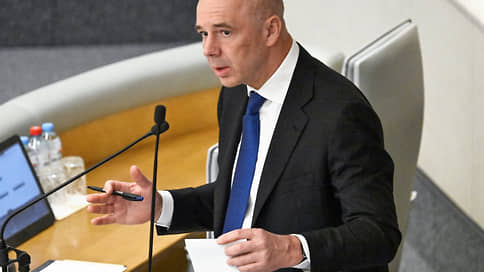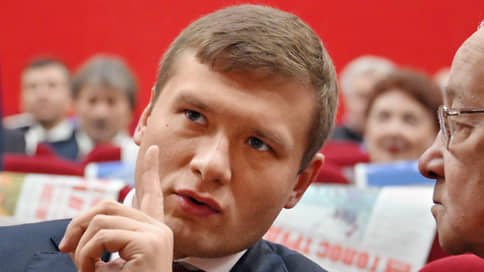Budget-2025: expenses will increase, the deficit will increase

On May 28, the State Duma adopted in the first reading a bill on the correction of the current federal budget. The need to change its basic parameters confirmed the preserved substantial dependence of the Gosquiting on oil prices – when increasing non -enjoyed revenues, a decrease in the cost of Urals led to an increase in the deficiency predicted in 2025 almost three times. Wanting to prevent such a situation in the future, the Ministry of Finance, when discussing amendments, returned to the idea of changing the current price of oil elimination. The outcome of the discussion promised already in the next budget cycle, however, is not a foregone conclusion – after all, a decrease in this threshold implies not only the growth in the accumulations of the Federal Tax Service, but also a more stringent approach to compounded expenses.
The government bill adopted in the first reading on the new federal budget parameters was submitted to the State Duma on May 12 (see Kommersant on May 13). According to amendments, the income expected in 2025 is reduced from 40.3 trillion to 38.5 trillion rubles, or by 4.5%. The expenditure part of the budget, on the contrary, is slightly growing (by 2%) – from 41.5 trillion to 42.3 trillion rubles. Accordingly, it is noticeable, almost three times, the planned deficiency increases – from 1.2 trillion rubles, or 0.5% of GDP, up to 3.8 trillion rubles, or 1.7% of GDP.
At first glance, such a “overturning” of the current budget in the middle of its execution looks frightening. However, we note that about the same deficit was also last year – 3.5 trillion rubles, or the same 1.7% of GDP.
In addition, the main, non -Neniftegasis part of the budget revenues in 2025 is quite stable and even grows – with amendments, it increases by 0.8 trillion rubles, to 30.2 trillion rubles. Additional income will give, in particular, VAT, tobacco excise taxes and personal income tax.
This is a relatively small increase in Neneftegas revenues, according to the budget rule, and gave the government the opportunity to add money to expenses (the same 0.8 trillion rubles) – despite the total reduction in budget revenues. As the head of the Ministry of Finance Anton Siluanov explained yesterday, these funds will go, in particular, to subsidize preferential mortgage programs (279 billion rubles) and the needs of the agro -industrial complex (55 billion rubles). In addition, due to high inflation (its assessment by 2025 is increased from 4.5% to 7.6%), the state will have to additionally index all the payments (scholarships, state employee salaries, and so on, for 73 billion rubles). Part of the additional money will, apparently, to military expenses – without calling the amount, Anton Siluanov announced « additional allocations to the Ministry of the Power Bloc in accordance with the tasks they perform. »
Thus, the problems of the budget-2025 are actually only with oil and gas revenues.
Tax receipts from production and gas sales will be reduced from 10.9 trillion to 8.3 trillion rubles, that is, by 2.6 trillion rubles, or by almost a quarter. This will happen due to a decrease in the forecast of the average cost of Russian oil this year from $ 69.7 to $ 56 per barrel, as well as due to adjustment of the ruble exchange rate from 96.5 rubles. $ To 94.3 rubles (a strong ruble reduces the income of exporters and their tax deductions).
In March of this year, according to the Ministry of Economy, the average Urals price was $ 59 per barrel, in April – $ 54.8. These values below not only the expectations initially laid down in the budget (as it turned out – very high), but also the cut -off price of $ 60, which is minimal for the execution of its expenditure part (if this level, oil and gas income should be accumulated in the Federal Tax Service).
The preservation of such an uncomfortable situation for the Government caused reasoning about the need to reduce the cutting price – to make the expenditure part of the budget less dependent on the price of oil and accumulate more for a rainy day. However, the authorities did not change this key parameter “on the move”-because its change implies a more stringent approach to the size of expenses, which in the current conditions (including due to the military operation in Ukraine) is unlikely.
During the Duma discussion of the budget, Anton Siluanov announced that the issue of changing the price of oil elimination can be considered in the preparation of the next budget – for 2026–2028.
According to him, “you need to think, maybe” about how much the threshold of $ 60 per barrel “today corresponds to those levels that allow us to ensure not only preservation, but also replenishment of the national welfare fund”.
Note that the process of layout the next budget will begin in the summer and the discussion will seem to be difficult. More recently, at the end of April, the minister talked about the need to change the excretion price, but in early May he said that there would be no this topic in the design of the next three -year budget. Now, judging by the neat formulations of Anton Siluanov, she returned to the agenda, but the result of the discussion was not at all predetermined. “I’m not saying that you need to make such decisions tomorrow. And so far we have no such decisions in the government. But we must think about it, ”he said after a meeting to reporters.
In the meantime, the minister noted that in the current conditions you need to carefully treat new expenses from the FNB. So far, this is possible: unlike recent years, in 2025 a relatively few deficit from the fund will be seized – 447 billion rubles. (however, before the advent of amendments, this was not provided at all). In 2023, a lot more was taken to close the deficiency from the FNB-3.5 trillion rubles, in 2024-1.3 trillion rubles. Earlier, the minister noted that the Liquid Assets of the FNB would be nice to bring to the level of three -year uninterrupted financing of expenditure obligations in the stressful development of the situation in the oil market. It should be noted that now (according to the Ministry of Finance on May 1) the volume of liquid assets of the fund is 3.3 trillion rubles. – that, depending on the situation, it may be enough for both a year and a significantly larger number of years.








